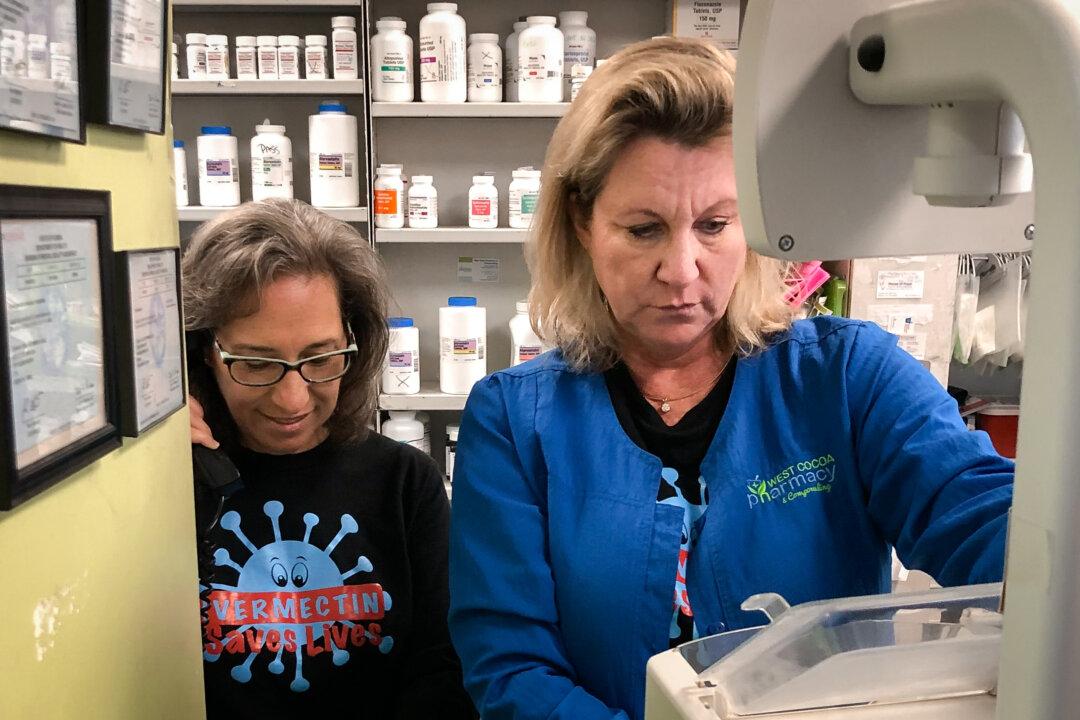The children of a 55-year-old Florida woman say the hospital treating their mother for COVID-19 told her and them that she would be treated with ivermectin. However, the treatment was stopped after she improved because a hospital pharmacist intervened, medical records show.
Dianne Spangler, of Titusville, worsened after the ivermectin was stopped early. She was put on a ventilator and died, medical records obtained by The Epoch Times show.





